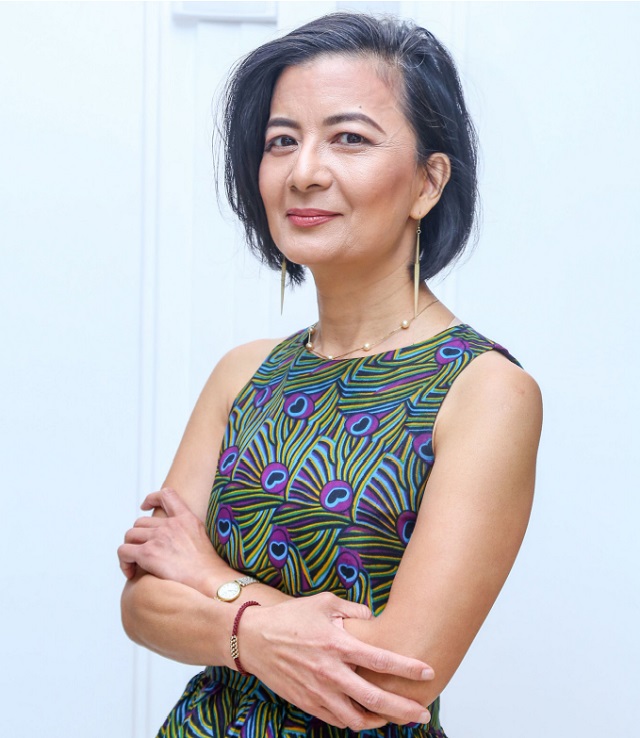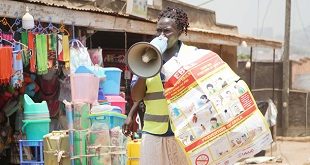
Mastercard Foundation’s $1.3bn plan
The Mastercard Foundation announced in June that it would deploy $1.3 billion for a three-year partnership with the Africa Centres for Disease Control and Prevention (Africa CDC) “to save the lives and livelihoods of millions of people in Africa and hasten the economic recovery of the continent”. Called Saving Lives and Livelihoods, the initiative “will acquire vaccines for at least 50 million people, support the delivery of vaccinations to millions more across the continent, lay the groundwork for vaccine manufacturing in Africa through a focus on human capital development, and strengthen the Africa CDC.”
The need is enormous. According to CDC Director Dr. John Nkengasong, as of 22 June, only 10.2 million Africans – 0.85 percent of the continent’s population – are fully vaccinated against Covid. Put another way, Africa’s 54 countries combined have received only about two percent of the global vaccine supply. Many countries have run out of supplies to administer second doses, which are especially important given the lower efficacy of incomplete vaccination against more-infectious Covid ‘variants’.
The Canada-based Mastercard Foundation is one of the world’s largest, with assets of more than $39 billion. It previously collaborated with the Africa CDC to enable distribution of more than 47 million Covid-19 test kits and deploy over 12,000 African health workers and rapid responders. The new partnership marks a significant moment in the Foundation’s commitment to Africa, where it has spent over $4.4 billion to expand education and financial inclusion.
Mastercard Foundation President and CEO Reeta Roy is a veteran of the private and public sector, as well as the United Nations, whose work on education, youth employment and global health challenges has been recognized with numerous awards and seven honorary doctorates from universities, including the Kwame Nkrumah University of Science and Technology in Ghana. AllAfrica’s Mantsadi Sepheka spoke with her the day of the announcement.
I’m sure you’ve been in non-stop interviews and conversations about the $1.3 billion partnership that Mastercard Foundation announced to support fighting Covid-19 in Africa.
Yes, it’s something we like to keep talking about, but we also want to get to work! We are excited.
The vaccine doses Africa has received are a long way from an equitable share. South African President Cyril Ramaphosa has been talking about the need for Africa to make our own vaccines, so that the waiting period is reduced. How will your initiative help?
You are absolutely right about equity and that all lives are equal. That is something we hold very dear, and I know you have the same view. This partnership is, at its essence, about saving lives and livelihoods of millions of people across the continent. It is also to enable and hasten economic recovery across the continent. It has four components: First, it’s about acquiring vaccines for at least 50 million people. Second is to enable and support the deployment of vaccinations to millions more across the continent. Third is about preparing the workforce – building human capital for vaccine manufacturing on the continent. Mastercard Foundation’s Covid-19 partnership with the Africa CDC aims to support the recovery, rebuilding and restoration of African lives. Fourth is getting behind and supporting the institution of the Africa CDC, so that it can undertake this massive vaccination initiative on the continent. We know that doing this will enable economies to reopen. People will be able to get on with their lives. This will be part of the recovery, rebuilding and restoration of their lives.
So what is the scope of the partnership? How will it work?
The scope covers the four critical areas. The Africa CDC will be the main partner overseeing the entire initiative. The initiative is inclusive of all countries of the African Union, and the CDC will hold regional consultations.
The good thing, Mantsadi, is that we are not starting from scratch. We are getting behind national vaccination programs. As (Rwandan) President [Paul] Kagame said, we are not creating parallel systems. We are seeking to understand the status of the vaccination supply in each country – what is coming to them from COVAX (COVID-19 Vaccines Global Access collaboration) or what they have purchased through the CDC’s Africa Vaccine Acquisition Task Team (AVATT) and what the gaps are.
And, in your own words, why is this partnership critical for the future of Africa?
It is absolutely critical for so many reasons. Compare Africa’s rates of vaccination with many other parts of the world where upwards of fifty percent have been vaccinated. It’s such a moral imperative for us to address this inequity. That’s number one.
On a more practical level, it is very, very clear that none of us can get on with our lives till all of us – or as many of us as possible – are vaccinated, so that economies can reopen, kids can go back to schools safely, we can be back at work, and growth can start to take place again.
 The Independent Uganda: You get the Truth we Pay the Price
The Independent Uganda: You get the Truth we Pay the Price



